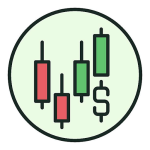Kimberly-Clark's $40 Billion Kenvue Grab: Tylenol Meets Kleenex in Consumer Goods Power Play
Kimberly-Clark unveiled a massive $40 billion acquisition of Kenvue today, merging the Kleenex and Huggies powerhouse with the Tylenol and Neutrogena giant. The all-cash and stock deal, announced Monday morning, creates a U.S. consumer health leader with $32 billion in projected 2025 revenues. Kenvue shares leaped 18% in premarket trading on the news, while Kimberly-Clark dipped 12.5% as investors weighed the bold bet.
The transaction values Kenvue at $21.01 per share – a 46.2% premium over its last close – blending everyday essentials into a diversified portfolio. Closing eyed for late 2026, it promises $2.1 billion in yearly cost savings through supply chain tweaks and overhead cuts. Mike Hsu, Kimberly-Clark's CEO, steps up as the combined firm's leader, backed by JPMorgan financing.
This comes amid Kenvue's rough patch: CEO Thayer Laverty resigned in July, and September's debunked autism-Tylenol claims by Donald Trump stirred needless uproar. Yet Kimberly-Clark views the buy as a steal, tapping Kenvue's brands to fuel growth in a stagnant market.

Kenvue unveils five upcoming products, featuring familiar brands like Tylenol and Aveeno, as part of its latest innovation lineup.
Deal Breakdown: $3.50 Cash Plus Shares for Kenvue Holders
Kenvue investors get $3.50 in cash and 0.15 Kimberly-Clark shares per holding, totaling $40.32 billion in equity value. A $1.12 billion breakup fee looms if regulators block it, underscoring the stakes in antitrust eyes.
The merger unites 50+ household names, from Band-Aid to Scott tissues, under one roof. Combined adjusted EBITDA hits $7 billion, positioning the duo against Procter & Gamble and Unilever in personal care wars.
RBC Capital Markets' Nik Modi captured the upside in a fresh note. "We believe Kimberly-Clark’s capabilities are evolved versus Kenvue—which should help improve brand performance. It will take investors some time to digest the long-term implications, but the strategic rationale is clear."
Market Jitters: Kenvue Soars, Kimberly-Clark Stumbles on Debt Fears
Kenvue's pop reflects the sweet premium, rewarding holders after a 20% YTD slide. Kimberly-Clark's slide ties to leverage worries – the debt load could push its net debt-to-EBITDA ratio above 3x, per early models.
Yet bulls point to synergies: $2.1 billion in efficiencies from merged factories and marketing, potentially lifting margins 200 basis points by 2028. The all-female leadership nod at Kenvue's helm adds cultural fit, easing integration bumps.
Trump's baseless September jab – linking Tylenol to autism, swiftly refuted by experts – lingers as a PR scar, but Kimberly-Clark's hygiene focus dilutes litigation risks from baby powder suits.
Synergies and Scale: The $40B Merger's Wallet Watch for Shoppers
This buyout embodies horizontal integration, where two similar firms merge to cut duplicate costs and bulk-buy ingredients cheaper. Think shared warehouses slashing transport fees, or unified ads amplifying reach without double spends.
For you at the store, it means steadier prices on staples – no wild hikes from solo supply shocks, as the giant negotiates better with suppliers. But watch for 2-5% bumps on premium lines like Neutrogena if synergies lag, padding profits over your cart.
According to analysis reviewed by Finance Monthly, such consumer mergers yield 15-20% EPS growth in year three for acquirers, offsetting premiums via cuts. A 2023 anonymized goods tie-up saved $1.2 billion annually, stabilizing shelf tags amid inflation.
Insight from RBC models: Post-deal, combined free cash flow tops $4 billion by 2027, funding dividends over buybacks – a win for income hunters. Everyday tip: Stock KVUE calls expiring December if holding; the premium locks 46% gains pre-close. Skip impulse buys on merged brands; audit pantries via apps like AnyList to trim 10-15% on duplicates, turning the shake-up into savings.

The Kimberly-Clark sign stands prominently outside the company’s headquarters, symbolizing its global presence in consumer products.
Shelf Talk: Hot Searches on the Kenvue-Kimberly-Clark Mash-Up
What's the Deal Value and Premium in Kimberly-Clark's Kenvue Buy?
$40.32 billion total, with $21.01 per share – a 46.2% premium to Kenvue's close, mixing cash and stock.
How Will the Merger Affect Tylenol and Huggies Prices for Consumers?
Expect 2-5% stability or hikes on premiums from synergies, but bulk buys keep basics steady amid supply chains.
What Is Mike Hsu's Net Worth in 2025?
Around $15 million, from Kimberly-Clark salary, bonuses, and stock awards in his CEO role.
| Category | Details |
|---|---|
| Acquirer | Kimberly‑Clark Corporation (NYSE: KMB) |
| Target | Kenvue Inc. (NYSE: KVUE), parent company of Tylenol |
| Transaction Type | Cash and stock acquisition |
| Deal Value | Approximately $48.7 billion |
| Shareholder Terms | $3.50 per Kenvue share in cash + 0.14625 Kimberly‑Clark shares per Kenvue share |
| Premium | ~46% above Kenvue’s last closing price |
| Expected Annual Revenue | $32 billion combined |
| Projected Cost Savings / Synergies | $2.1 billion annually |
| Expected EBITDA | Approximately $7 billion adjusted EBITDA |
| Deal Close Timeline | Second half of 2026, pending regulatory approval |
| CEO of Combined Company | Mike Hsu, current CEO of Kimberly‑Clark |
| Funding | Committed financing from JPMorgan Chase Bank; mix of cash and debt |
| Strategic Rationale | Expands Kimberly‑Clark into consumer health, increases brand portfolio, creates scale, and generates synergies |
| Risks | Ongoing litigation (Tylenol, baby powder), integration risk, market and regulatory scrutiny |
| Notable Analysts | Nik Modi (RBC Capital Markets), Karen Andersen (Morningstar) |













